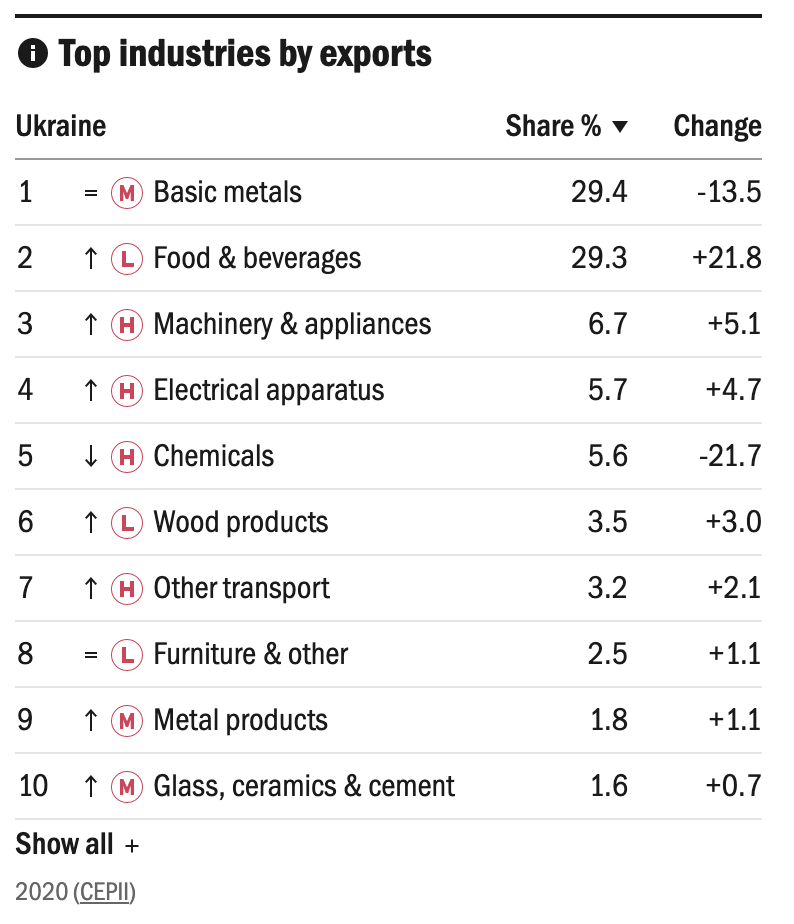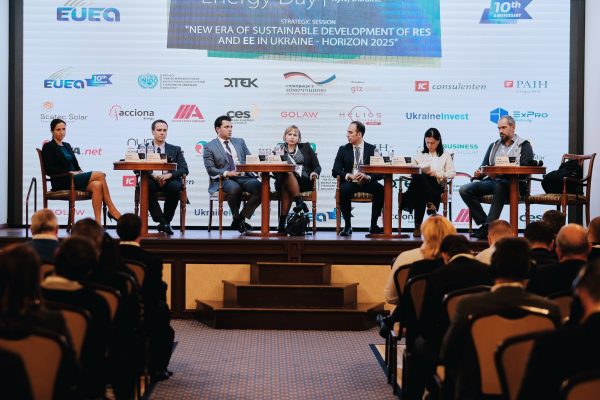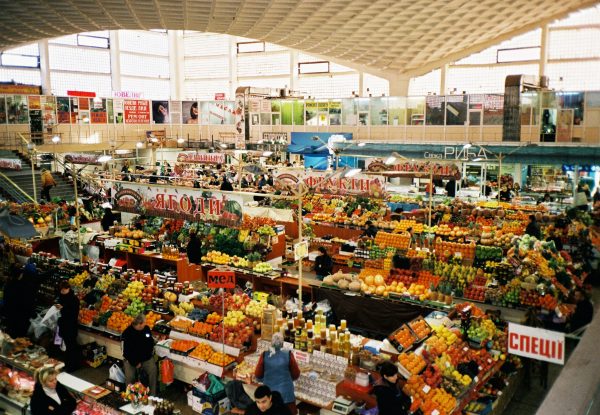Ukraine
This project phase has been completed.
Reigniting a European industrial heartland in an era of climate change
Ukraine was once considered an industrial powerhouse. However in recent years, political and economic instability, combined with the country’s inefficient use of energy and high energy prices, have significantly hindered Ukraine’s economic performance and industrial competitiveness.
Determined to fulfil Ukraine’s economic potential, in 2015 the government announced its national energy strategy, which outlines the country’s long-term energy development priorities with the goal of integration into European energy markets. One key goal is to significantly improve the energy intensity of the national economy by more than 50 per cent by 2035. Such an ambitious target will require a major overhaul of outdated infrastructure and an industrial sector wide prioritization of energy efficiency. If successful, Ukraine will be well placed to take its rightful place as a major European economy in an unprecedented era of climate change.
Why is industrial energy efficiency important for Ukraine?
Energy poverty is rampant in Ukraine. An estimated 70 per cent of Ukrainian households are paying an unsustainably high share of their incomes for energy bills. Industrial energy efficiency will greatly contribute to improving energy access for the everyday Ukrainian while keeping prices down. Energy experts also recognize industrial energy efficiency as one of the most cost-effective ways to address Ukraine’s high energy dependency, which is putting the country’s energy security at significant risk.
Ukrainian industries are typically 3-4 times more energy intensive than comparative industries in the EU. This is partly due to fixed assets which are old and inherently less efficient, but also due to the fact that energy management and energy efficiency have not traditionally been prioritized in Ukraine. Considering the industrial sector comprises more than 28 per cent of the country’s GDP, the prioritization of energy efficiency is critical for Ukraine’s industrial sector as it tries to remain competitive in the EU and beyond.
Industrial processes and fuel combustion in industry constitute the highest share of carbon emissions in Ukraine. One of the key reasons for this is outdated and inefficient production technologies that remain in use across the entire region. For example, smelting one ton of steel in obsolete open-heart furnaces in Ukraine can consume almost four times more energy than smelting one ton of steel in more efficiency European Union countries or in China. As a result, Ukraine’s industrial sector, especially its metal industries, offer vast opportunities to rapidly reduce greenhouse gas emissions through energy efficiency practices, innovation and new technology.
Accelerating industrial energy efficiency in Ukraine
The Ukrainian government aims to improve its energy intensity by more than 50 per cent before 2035. However, there are a number of systemic barriers which are contributing to slower than hoped progress.
In an effort to reduce emissions and enhance Ukraine’s industrial competitiveness, this project is helping to kick-start the adoption of an internationally aligned national energy management system standard known as IS0 50001. The project also focuses on improving energy efficiency and energy management practices through training, advocacy and investment generation.
Key service areas
Training and know-how
UNIDO’s training modules on energy management systems are currently being delivered throughout Ukraine to various industry and energy management practitioners. In total, the project expects to train more than 450 people in energy management and energy systems optimization best practice. A widespread industrial energy efficiency awareness campaign, targeting decision makers on the benefits of industrial energy efficiency, is also being implemented. This campaign aims to introduce the concept of energy system optimization, as well as the benefits of industrial energy efficiency in terms of cost savings, competitiveness and environmental impacts.
Advocacy and policy support
In coordination with Ukrainian Government counterparts and other key stakeholders groups, UNDIO is working to strengthen industrial energy efficiency accreditation and certification schemes such as the ISO 50001 energy management system. This work includes support for the development of legislation, which will encourage wide scale implementation of industrial energy management standards.
Financing solutions
In Ukraine there is substantial finance available for energy efficiency projects. However extremely high interest rates, collateral requirements and limited capacity to present solid project proposals limit the overall flow of investment into energy efficiency improvements. To address these barriers, the project will launch a Loan Guarantee Facility (LGF) for industrial energy efficiency investments. The guarantee scheme is designed to reduce risks and losses by providing securities to financial institutions while simultaneously improving access to much needs capital for enterprises. Ultimately it is hoped that this loan guarantee will stimulate investment into technology upgrades and energy management systems.
Targets
energy saved out 10 years, roughly equivalent to the annual energy consumption of over one million Ukrainians.
in energy management systems (EnMS) and energy system optimization (ESO) are trained and qualified to support an EnMS ISO 50001 roll-out.
of CO2 emissions avoided, roughly equivalent to the per capita greenhouse gas emissions of 116,000 Ukrainians.







